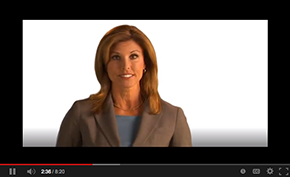Actuaries practicing in the U.S. must meet basic education, continuing education, and experience requirements before issuing a statement of actuarial opinion (SAO). The arduous path through basic education, with its difficult exams leading to associate or fellowship credentials, is well known. But the experience requirement occasionally catches newly credentialed actuaries by surprise. Although some actuaries gain the required experience before finishing their exams, others earn a credential before gaining the experience needed to issue an SAO. In such cases, even though the actuary is credentialed, the actuary is not yet qualified to issue SAOs in the U.S.
Some actuaries may think that their work doesn’t entail issuing SAOs, but remember, the Qualification Standards for Actuaries Issuing Statements of Actuarial Opinion in the United States (USQS) defines “statement of actuarial opinion” very broadly:
“an opinion expressed by the actuary in the course of performing Actuarial Services and intended by that actuary to be relied upon by the person or organization to which the opinion is addressed.”
If you are working as an actuary in the U.S., it is very likely that you are issuing SAOs and therefore must meet all three of the requirements of the USQS. That includes experience, which is a different requirement than basic education.
Let’s take a closer look at what is required in terms of experience under Section 2: General Qualification Standard. First, to issue any SAO, an actuary must have three years of “responsible actuarial experience,” which the USQS defines as “work that requires knowledge and skill in solving actuarial problems.” This experience may be gained before or after earning a credential.
Additional requirements must be met to issue an SAO in an area covered by a specialty track offered by the Society of Actuaries (SOA), or in an area of practice covered by the exams of the Casualty Actuarial Society (CAS) or the American Society of Pension Professionals and Actuaries (ASPPA). To issue such an SAO, an actuary must meet one of the following requirements:
Attain the highest possible designation (e.g., an FSA or FCAS) and complete a specialty track in the area of actuarial practice relevant to the subject of the SAO; or
Attain the highest possible designation and have at least one year of responsible actuarial experience in the area of actuarial practice relevant to the subject of the SAO under the review of an actuary qualified to issue the SAO at the time the review took place under the standards in effect at that time; or
Have at least three years of responsible actuarial experience in the area of actuarial practice relevant to the subject of the SAO under the review of an actuary qualified to issue the SAO at the time the review took place under the standards in effect at that time.
Two questions are frequently raised about these requirements. First, does “area of practice” mean the traditional areas of practice (life, health, etc.) or something more specific? And second, must the actuary whose work is being reviewed work directly under the reviewing actuary?
The Committee on Qualifications’ (COQ) response to these questions make clear that experience within a single practice area—meaning the traditional practice areas of life, health, casualty, and pension—satisfies the experience requirement, even if, for example, the actuary is moving from, say, pricing to valuation within one of those areas. (Inquiring actuaries are often reminded, however, that there is a look-in-the-mirror aspect to qualifications and that they should obtain continuing education relevant to their new assignment, even if within the same practice area.)
On the second question, the COQ has interpreted the requirement to have one’s work reviewed as follows:
There is no requirement to work “directly under” the qualified actuary, but the qualified actuary must have reviewed the actuary’s work and must have been appropriately qualified “at the time the review took place.” The USQS does not require the reviewing actuary to have actually issued the opinion, so long as he or she was qualified to do so at the time of review.[1]
If you have questions about qualifications, we encourage you to read the USQS and the FAQs on the U.S. Qualification Standards. There are also archived professionalism webinars, e.g. “Professionalism and the U.S. Qualification Standards,” from 2016. If, after reviewing those documents, your questions have not been answered, you may submit a question to the COQ through the Academy’s website.




